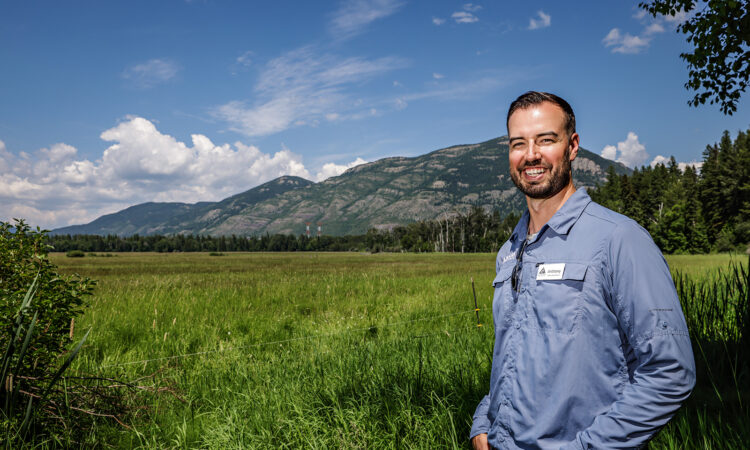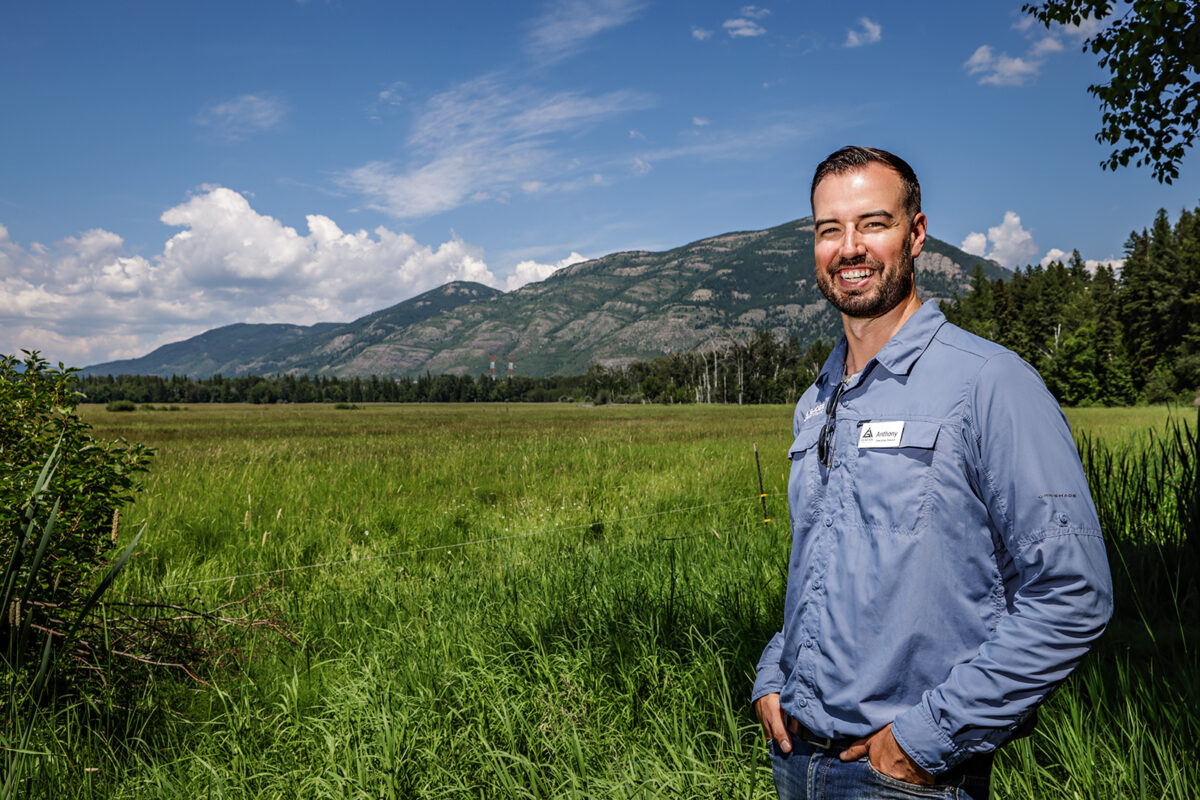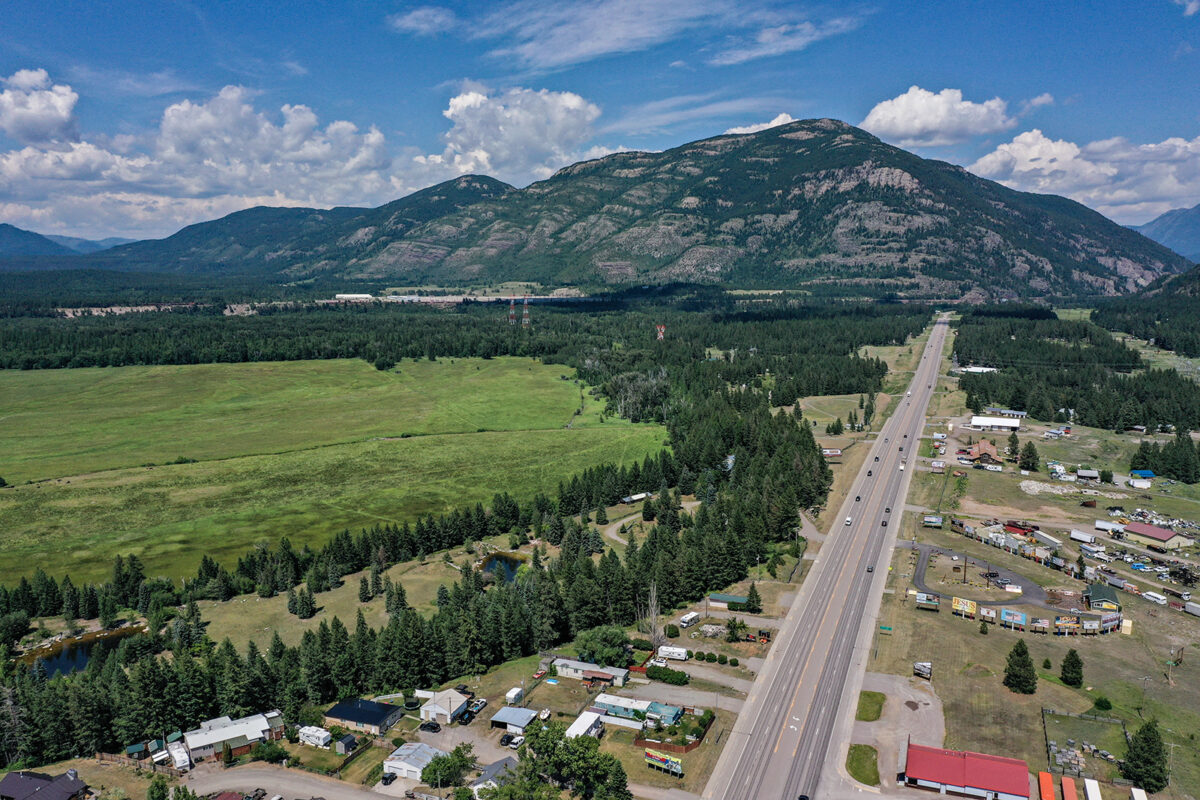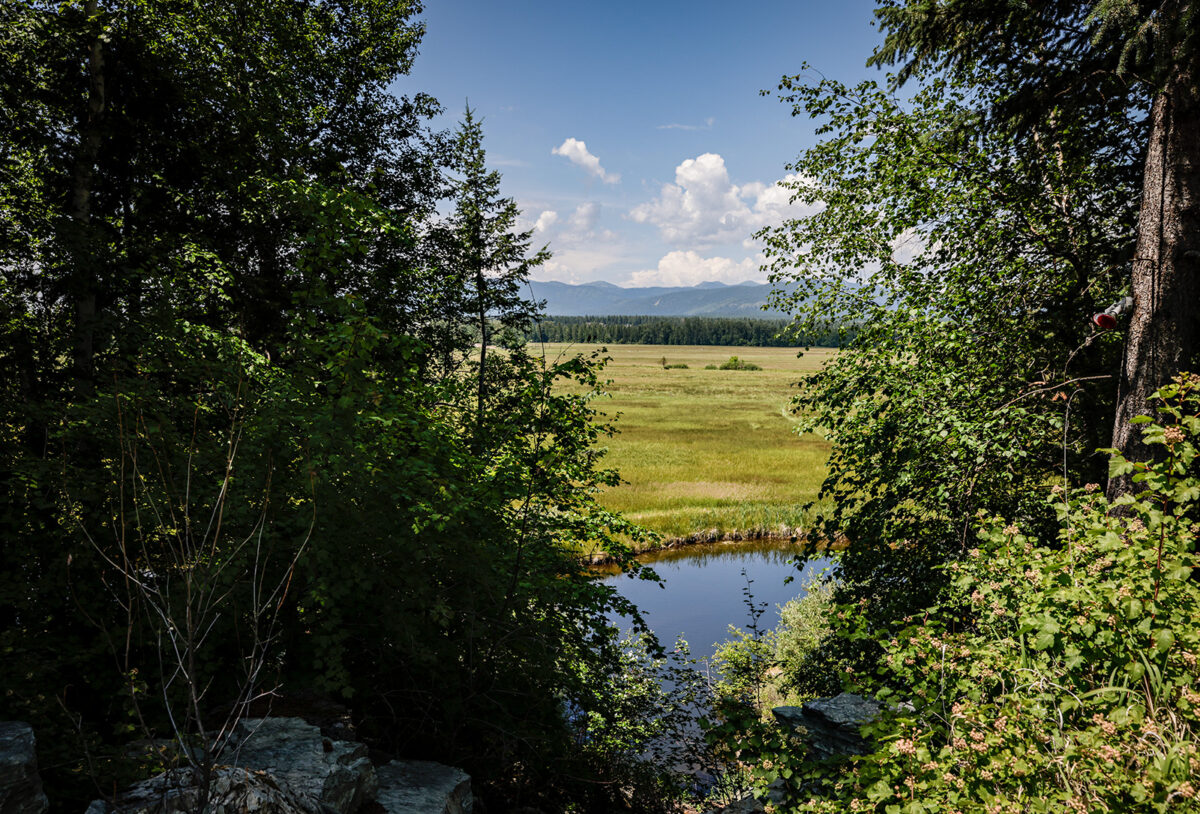
On a parcel of land 1.4 miles east of the Flathead River, bubbling creeks, vast open fields and blue-green ponds sit tucked away behind U.S. Highway 2, where the hum of the road is hushed by acres of native pine trees. Navigating his way across a stream and stepping into a patch of tall grass, Anthony Nelson looked out onto the 142 acres of uninhabited land that sits in the shadow of Glacier National Park.
“At this point, it’s a dream,” Nelson said. “A really cool dream, but it’s a dream.”
Nelson is the executive director of the Glacier Institute, a local nonprofit focused on educational programming in and around Glacier National Park. The dream is Glacier Institute’s goal of purchasing the 142-acre parcel of land to create a new nature center and headquarters. First, they just need to raise the money for it.

Two years ago, the Glacier Institute board of directors identified creating a nature center somewhere between Columbia Falls and West Glacier as a key goal in their plans for the future — a place where the nonprofit could lead educational courses, expose locals and tourists alike to the area’s rich ecosystem, and gather before heading off on excursions in the park. The board of directors added this goal to the institute’s 10-year strategic plan, and have been looking for a potential site ever since.
At the end of May, opportunity came knocking on Nelson’s door.
The owners of the property — Ron Mayhew and Jeff Smith of Twin Peaks Farms LLC, based in Eagle, Idaho — had been in conversation with developers about turning the rural tract into housing for a number of years. Most recently, the land was proposed as the site of a housing development, a proposal that fell through when the sale of an adjacent 22-acre parcel was declined. At that point, the Glacier Institute decided to reach out to Mayhew and Smith. The landowners, Nelson said, are interested in the property going towards serving the community, and have given the nonprofit a month to drum up the funds to buy it.
“The land as it is now is extremely valuable to our mission and what we do,” Nelson said.

Equipped with hiking trails, rustic cabins, water features and diverse flora and fauna, Nelson said that the land would serve as a vibrant outdoor classroom on its own, and that the Glacier Institute would not need to do much development. Though he has some ideas — a nature education building, exhibits, employee housing — he said he would be thrilled to just have the site, and the rest could come with time.
“We wouldn’t have to do anything. We could literally just set up a spotting scope and do some nature walks, and that would be an amazing use of this property,” he said.
The new nature center would be the main site for the Glacier Institute’s day programs, and its Big Creek Outdoor Education Center would continue to house its multi-day, overnight trips.
With their dream cemented, the Glacier Institute is calling on the community to help them raise the funds for the project. With the sale of their downtown Columbia Falls location — which they would close to open this new nature center — the institute still needs $2.5 million to purchase the land.
Nelson acknowledges the unfortunate timing of the request — the Glacier Institute recently completed a $1.7 million project to restore Big Creek, their first capital campaign.
However, he and his team are hoping that the community sees the value in creating a new nature center, and putting a large parcel of the valley’s natural land to public use.
Those interested in learning more about the nature center proposal or making a contribution can contact Nelson at (406) 755-1211, or email naturecenter@glacierinstitute.org.







